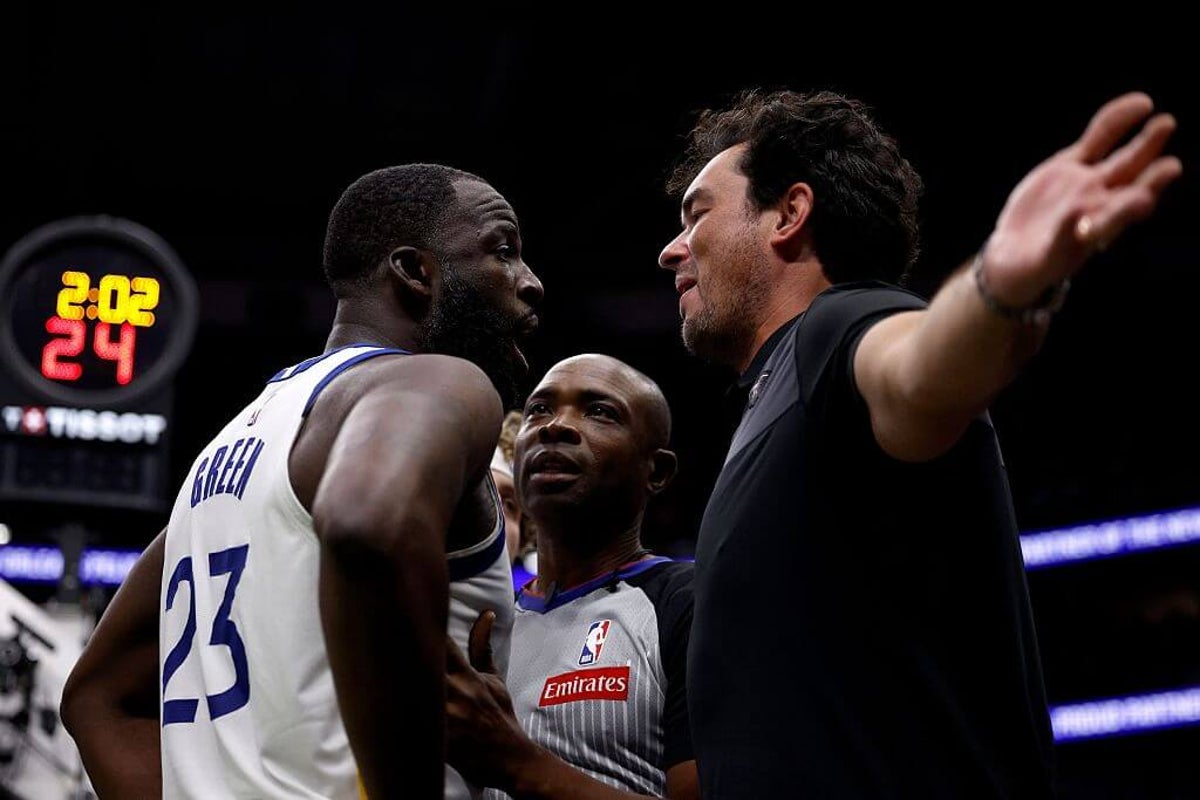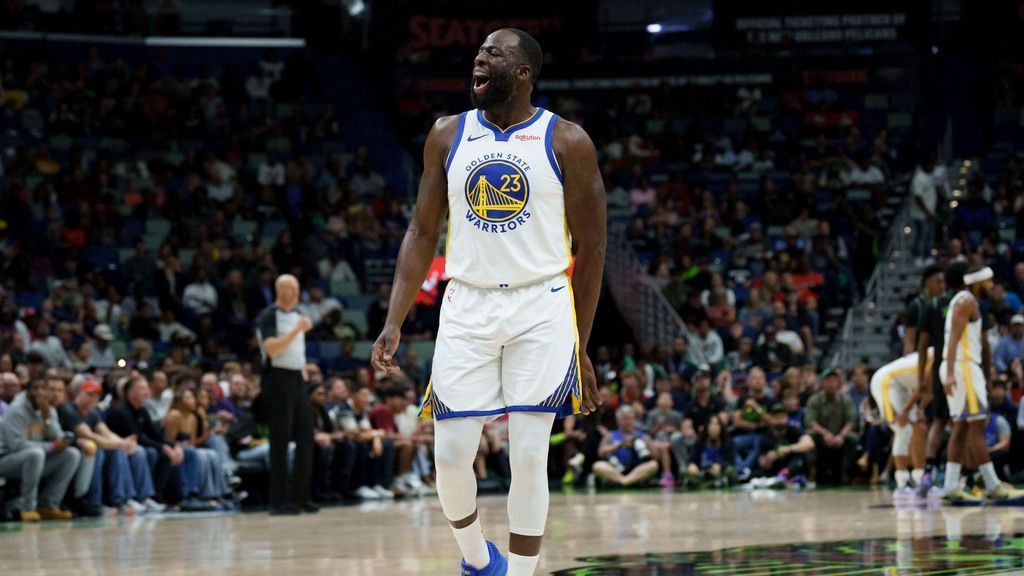NEW ORLEANS — The tension in Smoothie King Center was palpable, a silent hum of anticipation giving way to a sudden explosion of confrontation that saw Golden State Warriors forward Draymond Green engage in a heated, chest-to-chest verbal exchange with a fan. The incident, unfolding during a Sunday night game against the New Orleans Pelicans, wasn’t just another player-fan dust-up; it was a deeply personal clash fueled by gender-based taunts and a star player’s boiling point.
The Ignition Point: From Taunt to Tensions
The catalytic moment occurred during the second quarter of the Warriors’ eventual 124-106 victory. A fan, later identified as Sam Green, repeatedly hurled chants of ‘Angel Reese’ and, more provocatively, continually referred to Draymond Green as ‘a woman.’ For Green, a player known for his fiery demeanor and emotional investment in the game, these taunts evidently crossed a line.
Witnesses describe Green, mid-game, turning his full attention from the court to the stands. His progression towards the fan was swift, determined, and unmistakable. The resulting exchange, though brief, was intense, requiring intervention from arena security and team staff to de-escalate the situation before it could spiral further. The implications, however, extend far beyond the single interaction.
The ‘Angel Reese’ Enigma and Gendered Insults
The reference to ‘Angel Reese,’ the prominent LSU basketball star, is far from accidental in this context. Reese has become a cultural icon, particularly known for her confident, often confrontational, style of play and celebration – traits that have drawn both immense admiration and unwarranted criticism, sometimes steeped in misogynoir. To use her name as a taunt towards a male athlete, especially when coupled with direct gender slurs, is a thinly veiled attempt to feminize and diminish the male player’s perceived toughness or skill.
“He just kept calling me a woman. I’m not one to ever hit a woman, but if I was, I would’ve hit him, you know what I’m saying?” Green reportedly stated post-game, highlighting the deeply insulting nature of the taunt and his struggle to contain his reaction within the bounds of league rules. The statement itself, while perhaps poorly phrased, underscores the perceived emasculating intent behind the fan’s words.
This incident throws a harsh spotlight on the increasing weaponization of gender in sports heckling, moving beyond traditional critiques of play to personal attacks designed to undermine an athlete’s identity.
Draymond Green’s Complicated History with Fans and Fouls
Draymond Green is no stranger to controversy. His career has been punctuated by technical fouls, ejections, and suspensions, often stemming from his passionate, sometimes volatile, interactions with opponents, officials, and occasionally, fans. His reputation as an agitator and an emotional leader is well-established.
- 2016 NBA Finals: Suspension for accumulating flagrant fouls.
- 2018-19 Season: Numerous technical fouls, testing the patience of the league office.
- 2023 Playoff Incident: Ejection and suspension for stomping on an opponent.
Each incident adds another layer to Green’s public persona, making reactions to events like Sunday’s confrontation deeply polarized. Some view his actions as justifiable defense against disrespectful and personal attacks, while others see it as further evidence of a player unable to control his temper.
The Evolving Landscape of Player-Fan Interactions
The relationship between professional athletes and fans has always been a complex dance of adoration and animosity. However, in the age of social media and heightened public scrutiny, the line between passionate fandom and outright harassment has become increasingly blurred.
“We’re seeing a rise in fans feeling entitled to say anything they want, hiding behind the anonymity of a crowd or the perceived distance from the players. This incident with Green isn’t isolated; it’s a symptom of a larger issue regarding respect and boundaries in professional sports arenas,” noted sports sociologist Dr. Elena Ramirez.
The NBA, alongside other major sports leagues, has long grappled with maintaining order and respect in its venues. While fans are encouraged to be loud and passionate, direct personal insults, especially those targeting race, gender, or sexual orientation, are explicitly prohibited and often result in ejection or bans.
The League’s Stance and Potential Ramifications
The NBA’s rules are clear: any fan who engages in unruly or offensive behavior, particularly that which targets players with discriminatory language, is subject to removal from the arena and potential bans. For players, physical or even overtly aggressive verbal confrontation with fans can lead to fines or suspensions.
The league office will undoubtedly review the incident. While Green did not make physical contact with the fan, the intensity and proximity of the confrontation could still warrant disciplinary action. The challenge for the NBA lies in balancing the need to protect players from abusive behavior with the imperative to maintain decorum and prevent on-court escalations.
Ultimately, the Draymond Green incident serves as a stark reminder of the fragile ecosystem that exists between players and fans. It underscores the profound impact of words, particularly when they cross into the realm of personal attack and identity-based disparagement. The resolution of this specific confrontation, and the broader conversations it sparks, will continue to shape the future of fan engagement and player conduct in professional sports for years to come.


